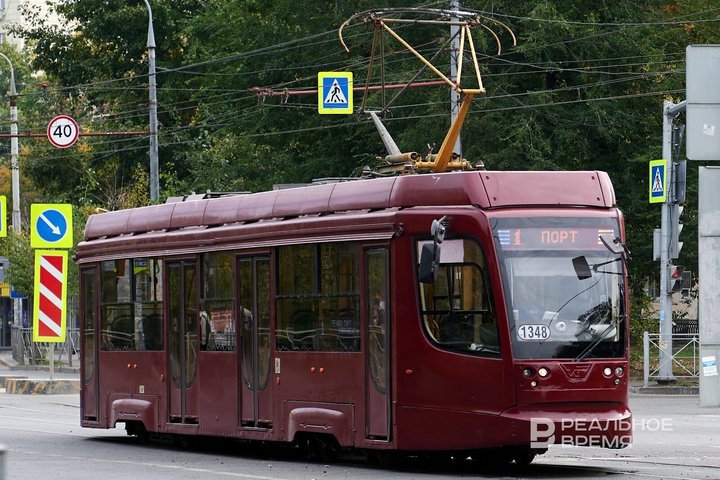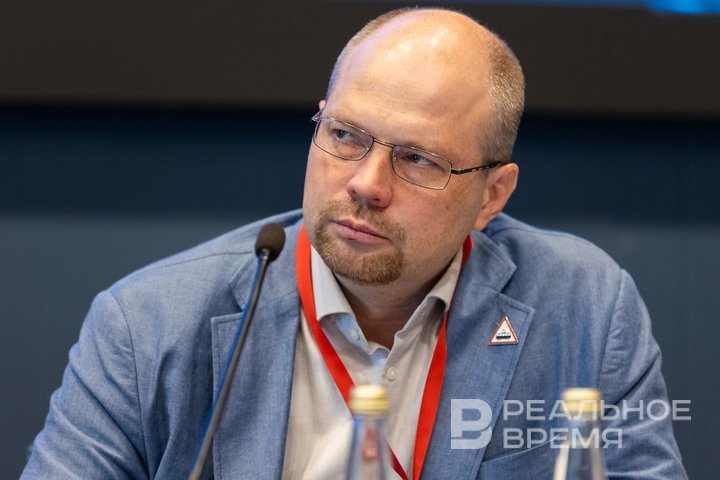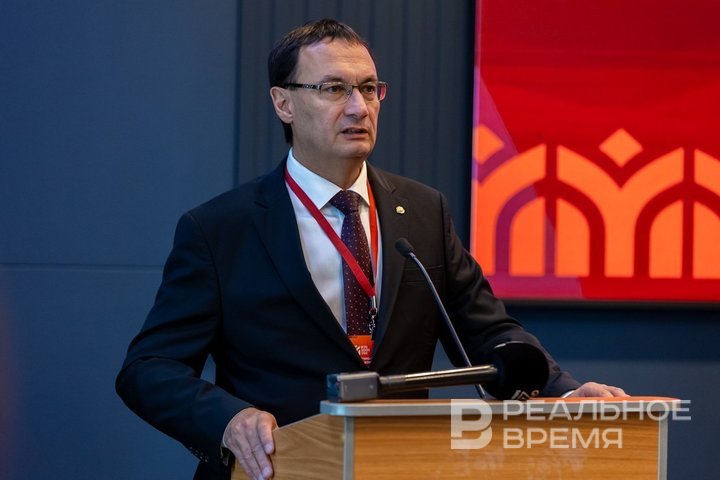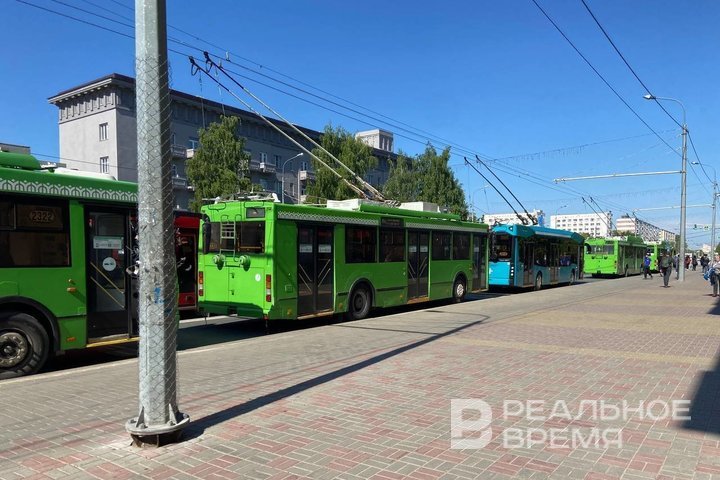‘Huge’ transportation costs and small fines for fare dodgers
Problems of the industry were discussed at a conference of transport workers

Savings of 1.2 million rubles and a relatively small number of fare dodgers — about 1.4% of the total number of passengers — is the result of the introduction of a fare payment system on ground electric transport, which was completed in Kazan in July. At the same time, the loss of income during this time did not exceed 10%. The intermediate results of the refusal of bus fare operators and the problems of public transport were discussed at a conference of the International Association of Urban Electric Transport Enterprises on 16 August. Read more about it in a report of Realnoe Vremya.
“I was also upset by this figure”
On average, 1.4% of city residents do not pay for travel in Kazan. This was announced during a conference of the International Association of Urban Electric Transport Enterprises by Alexey Varin, Deputy Director General of Metroelectrotrans electric transport company.
He also noted that most passengers “behave consciously.” 84% of Kazan residents pay for their fares voluntarily, and another 15% pay after an auditor’s request.
“A typical representative of fare dodgers belongs to the economically active category of the population aged 26 to 35. Most fare dodgers are peaceful,” Varin emphasised.
If Varin found the number of fare dodgers acceptable, then the amount of the fine for offenders, according to him, leaves much to be desired. At the moment, it is 300 rubles.

However, since the introduction of the payment system without a fare officer, not a single fare dodger has been charged with it. The speaker linked this to the lack of amendments to the legislation: the regulations state that the passenger must pay for the trip from the officer or driver, and the presence of a terminal is not provided in the documents.
Vladimir Fyodorov, the executive director of the association, also agreed with the unfair size of the fine:
“I was also very upset by the figure of 300 rubles for a fine. This is nothing. Even 2.500 is not enough. According to calculations, so to speak, the global, the ideal size of the fine is 1.5 times of a monthly pass. But it is clear that the authorities are not very active in this, saying that violators should be pitied.”

And the cost of a monthly pass, according to Varin, in Kazan is 2.4000 rubles. Accordingly, the size of the fine in the city should reach about 3.500 rubles.
Fyodorov specified that the purpose of the fines is not to force passengers to pay but to make them understand:
“If he does not pay, tomorrow he will not get a new modern tram or trolleybus, but an old, broken-down Gazelle bus with a boorish driver who will beat money out of him.”
Varin, in turn, expressed hope that the authorities will approve the proposal to increase the fine to at least 2.500 rubles, and the new standards will come into force by the end of the year.
“The cost of transportation is huge”
The cost of transporting one passenger in Kazan is “huge” — 63 rubles, General Director of of the company Aidar Abdulhakov answered the question of the Bashkir transport company:
“The question is very provocative, because the cost, if you count it according to accounting, is huge. We have a very high cost of depreciation of fixed assets. Our company is about metro, and trams, and trolleybuses. If we take all this into account, the cost of transporting one passenger today is about 63 rubles. If we talk without taking into account depreciation, then probably about 45-46 rubles, but this is taking into account the salaries that we currently pay. They, of course, do not meet high requirements.”

As for salaries, drivers receive one ruble for each cash and non-cash transaction, Varin said.
“We have introduced a general system: the driver receives one ruble for each transaction, cash or non-cash. And the drivers agree to work, believe me, they are interested in this,” he convinced, answering a question from a Chelyabinsk transport company.
A resident of Chelyabinsk was very surprised by this: according to him, in their city drivers are paid 1.5 rubles per passenger, and they do not agree.
Abdulhakov also said that a sharp reduction in the number of tickets paid for in cash is currently being recorded in Kazan public transport. It currently amounts to 3-3.5% of the total.
“We have absolutely no subsidies”
Summarizing the interim results of the summer period, Varin said that the loss of income from the fare collection system on trolleybuses and trams in Kazan does not exceed 10%:
“Many people have a logical question: does revenue collection suffer? This form of fare payment can lead to predictable losses, as it did in many cities that are following the path of transport reforms. There are losses, of course, but not so significant as to return to fare officers.”
Thus, according to him, the savings from the introduction of the system amounted to 1.2 million rubles.
Abdulhakov agreed with his colleague and added that even with minimal fines, an enterprise with a non-human system remains in the black compared to the old scheme, because conductors are “paralyzed” in a crowded tram car and cannot collect fees. In addition, employees can leave cash “in their pockets”.

“We have absolutely no subsidies or grants for ground transport. <…> We are going to implement a non-human system understanding that if we lose income, we are at a loss,” he added.